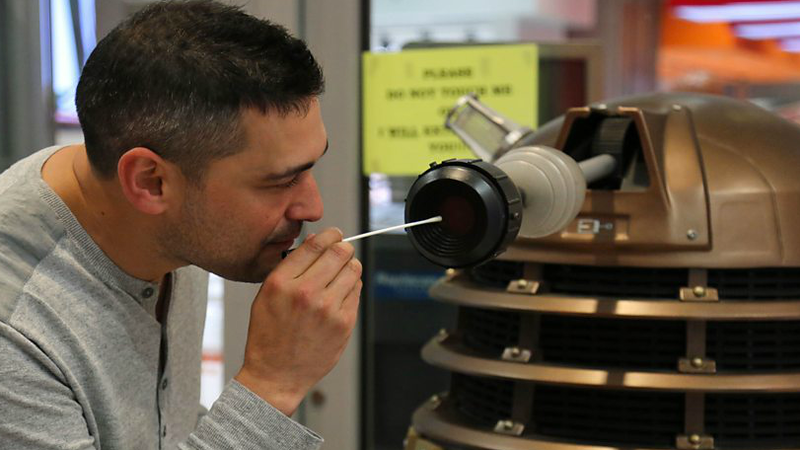A Dalek Is Helping Exterminate Antibiotic-Resistant Superbugs

A Dalek standing in the foyer of the BBC’s broadcasting building in London was recently found to contain an interesting compound that could be used to solve an ongoing medical crisis.
In an effort to develop new drugs, scientists are searching far and wide for bacteria and other microorganisms that might be used to combat superbugs. Scientists are currently on the hunt for undiscovered critters that may lurk at the bottom of the ocean or in our soil.
Or, as a recent BBC Inside Science episode reveals, on a Dalek standing guard at the reception area of the BBC Broadcasting House.
In what could be an incredible stroke of luck, scientists may have stumbled upon some rather helpful bacteria after conducting a microbial sweep of the London building. The effort is part of a project called “Swab and Send” where people are being asked to take samples of their everyday environments and send them to a lab for analysis. The hope is that some of these microbes might yield new antibiotics that can be turned into new medicines.
Looking to take part, BBC Radio 4 Inside Science host Dr. Adam Rutherford partook in the experiment, taking samples from around the building, including microphones, door knobs—and the eyestalk of the iconic Doctor Who villain. The collected samples were cultured, and the resulting bacterial colonies analyzed.
Earlier today, Rutherford told the BBC Today program that, “The Dalek provided not one, but four potential novel antibiotics.” These samples, unlike the others, produced unique colonies of bacteria that appear to be producing antibiotics that could, in theory, be developed as medicine.
“We’ve got at least three different types of bacteria from the Dalek that were able to ‘exterminate’ our Micrococcus indicator strain,” added Dr. Adam Roberts, the founder of the Swab and Send project.
Ah, we see what he did there. Nicely done, sir.
It’s not immediately clear why this particular object is home to such potentially valuable microbes. It could be completely random. Or, in direction violation of the sign next to it that says, “do not touch,” visitors are in fact putting their grubby little hands all over it, spreading their germs all over this thing.